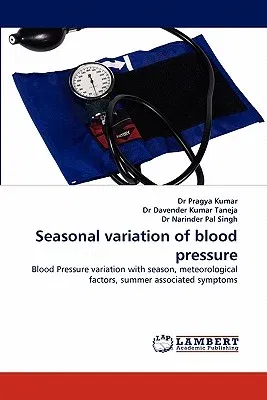Pragya Kumar
(Author)Seasonal Variation of Blood PressurePaperback, 10 November 2010

Qty
1
Turbo
Ships in 2 - 3 days
In Stock
Free Delivery
Cash on Delivery
15 Days
Free Returns
Secure Checkout
Print Length
92 pages
Language
English
Publisher
LAP Lambert Academic Publishing
Date Published
10 Nov 2010
ISBN-10
3843368767
ISBN-13
9783843368766
Description
Product Details
Book Format:
Paperback
Country of Origin:
US
Date Published:
10 November 2010
Dimensions:
22.86 x
15.24 x
0.56 cm
ISBN-10:
3843368767
ISBN-13:
9783843368766
Language:
English
Location:
Saarbrucken
Pages:
92
Publisher:
Weight:
145.15 gm

